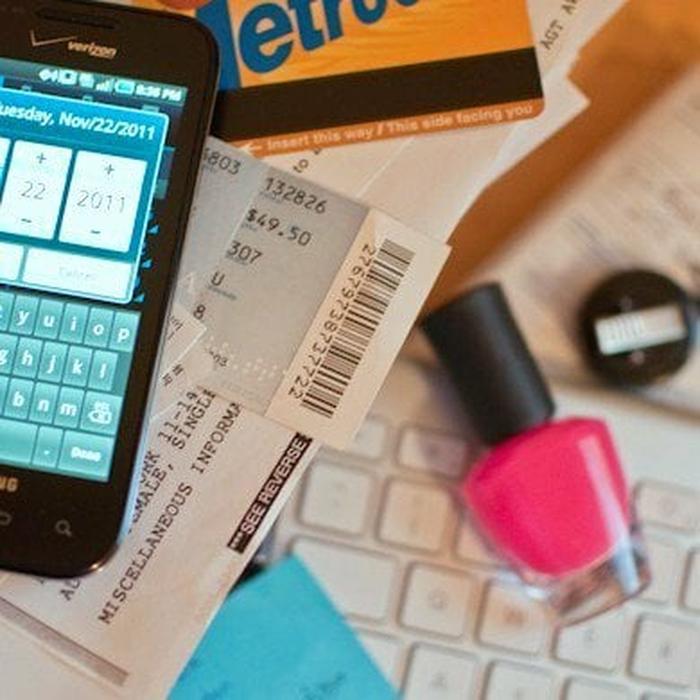
Ever have one of those days when, after nine jam-packed hours in the office, you still haven’t knocked a major item off your to-do list? When you feel like you could be productive—if only you worked in a silent, distraction-free box and weren’t bombarded by emails, phone calls, and co-worker drop-bys every 30 seconds?
But of course, that’s not the case. Most of us young professionals are seated in small, cluttered cubicles, surrounded by dozens of other young professionals in small, cluttered cubicles, and riddled with the ongoing digital distractions of our phones, computers, and blackberries.
It’s hardly the best environment in which to work. So how can we tune out the office distractions, buckle down, and actually get things done? Here are six simple solutions.
1. Unchain Yourself from Email
Just because you get tons of email everyday doesn’t mean you need be tied to your Outlook (or Entourage or Gmail). In fact, having your email constantly onscreen can make you less productive.
One easy change: don’t have your email open on your monitor all day. Instead, turn off all of your alerts and make a concerted effort to only check messages at scheduled times (I check mine about once every hour). If this makes you nervous—if your boss is a frequent emailer or you have a client that needs truly immediate responses—you can customize how Outlook alerts you so that only the big stuff gets your attention.
2. Don’t Pick up the Phone
Just because it rings, doesn't mean you have to answer it. If you've set aside an hour to bang out a report for your boss and you get a call from an unknown number, let it go to voicemail. Unless you’re expecting a call, it's not worth interrupting your focus. Trust me, if it's important, the caller will leave a message, and you can always call right back.
You’ll also save yourself from the stress of being unprepared for a call—if you’ve been crunching numbers for an hour and a venue calls about a late shipment, you’ll be more flustered if you pick up now than if you stop, re-focus, and call back later after you’ve tracked down that shipment info.
3. Signal to your Co-Workers
The social atmosphere is one of the best things about working in an office—but it’s also one of the most distracting. One way to counter this is to set up a system with your co-workers so that you all know when not to bother each other. This is easy when you have an office door that you can close—but if you don’t, devise your own signal that says “please don’t interrupt me right now.”
It can be as simple as putting on a pair of headphones (even if you aren’t listening to music) or sticking your favorite desk accessory on top of your monitor. Just keep in mind that this only works if you also make yourself available throughout the day—sometimes people do need your attention.
4. Be Physically Organized
Now you don’t necessarily have to keep your desk paper-free or color-code your folders, but if you're organized—in whatever way works for you—and you can find things, you'll be more productive. (My desk may look like a box of post-it notes exploded all over its surface, but I have a system, I swear!) No one likes to waste 10 minutes searching for last week's meeting minutes when you're supposed to be typing this week's agenda.
This is also a place where technology can really help. I find it much easier to file things digitally, so I make a point to scan everything and save it on my company’s shared drive. That way, if I’m on the phone with a client and need to double-check a contract, I can just pull it up on my screen—no need to put her on hold while I’m rooting around my cubicle for the right folder.
5. Get Distracted!
People often focus on eliminating distractions like Facebook, online shopping sites, and streaming media in the workplace. But as much as your boss might like to see you hunched over your keyboard staring at that spreadsheet for all eight (or more) hours a day, that’s not going to make you any more productive.
In fact, a recent study showed that “web browsing can actually refresh tired workers and enhance their productivity, compared to other activities such as making personal calls, texts, or emails, let alone working straight through with no rest at all.”
So, go ahead: Spend 15 minutes catching up on your Gawker gossip, or browse the new arrivals at JCrew. The break will make you all the more productive when you turn your focus back to the tasks at hand.
6. Keep a Work Journal
Finally, and most importantly, figure out how you personally work best. Try writing down everything you do during the day and how long it takes you—you’ll probably be surprised.
I started keeping a work journal so that I could tally how much of my day was taken up by administrative tasks and how much was left to devote to long-term projects. But it also ended up showing me my work patterns—for example, that I get by far the most work done during the afternoon. Recognizing this helped me set a better schedule: Now, I work late instead of coming in early, and I can usually pack much more productivity into my day.
It’s not always easy to tune out the distractions, but just think: the more productive you are now, the quicker you’ll get out of cubicle land and into an office—where you can shut the door.
What tips and tricks do you have for being productive at work?